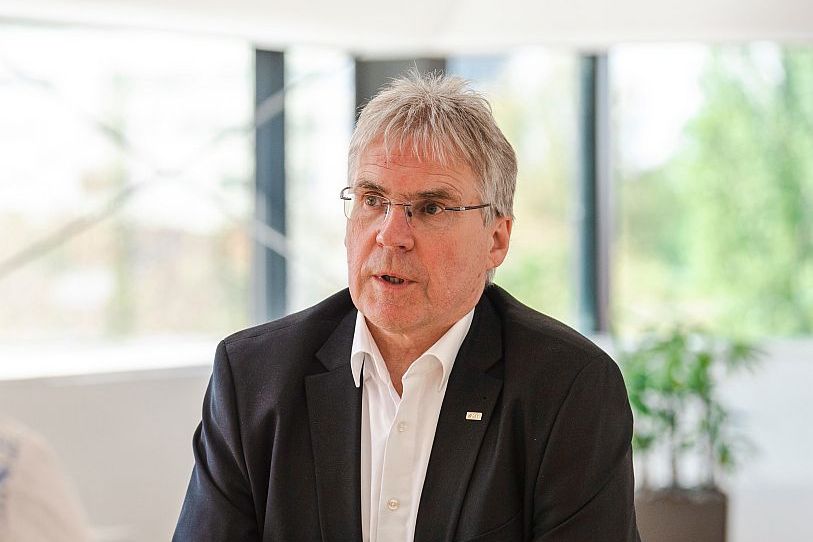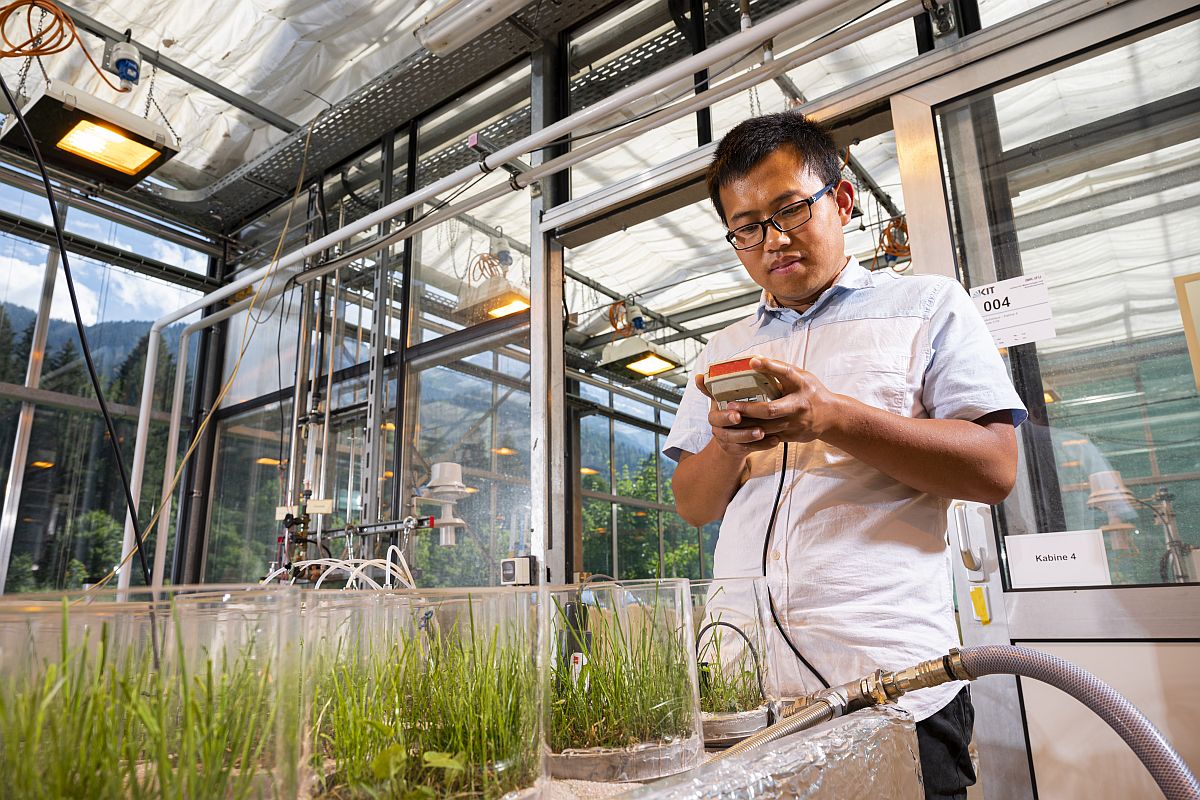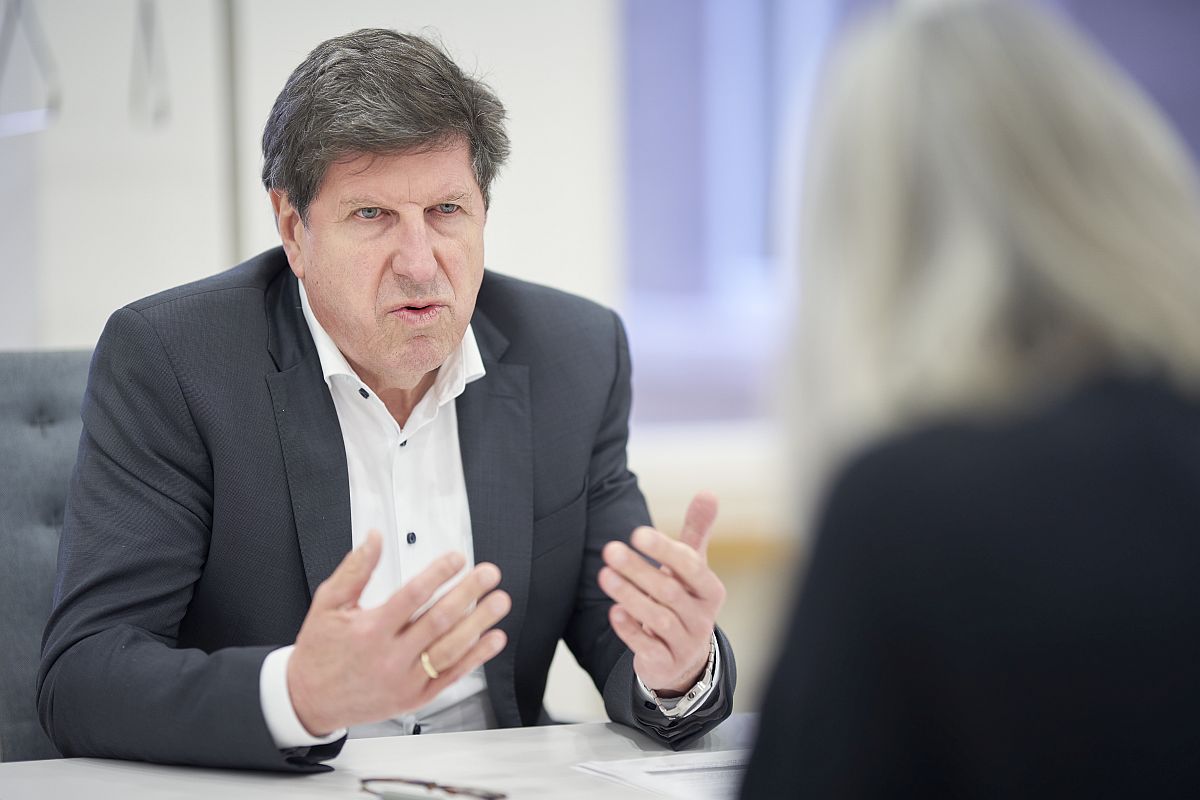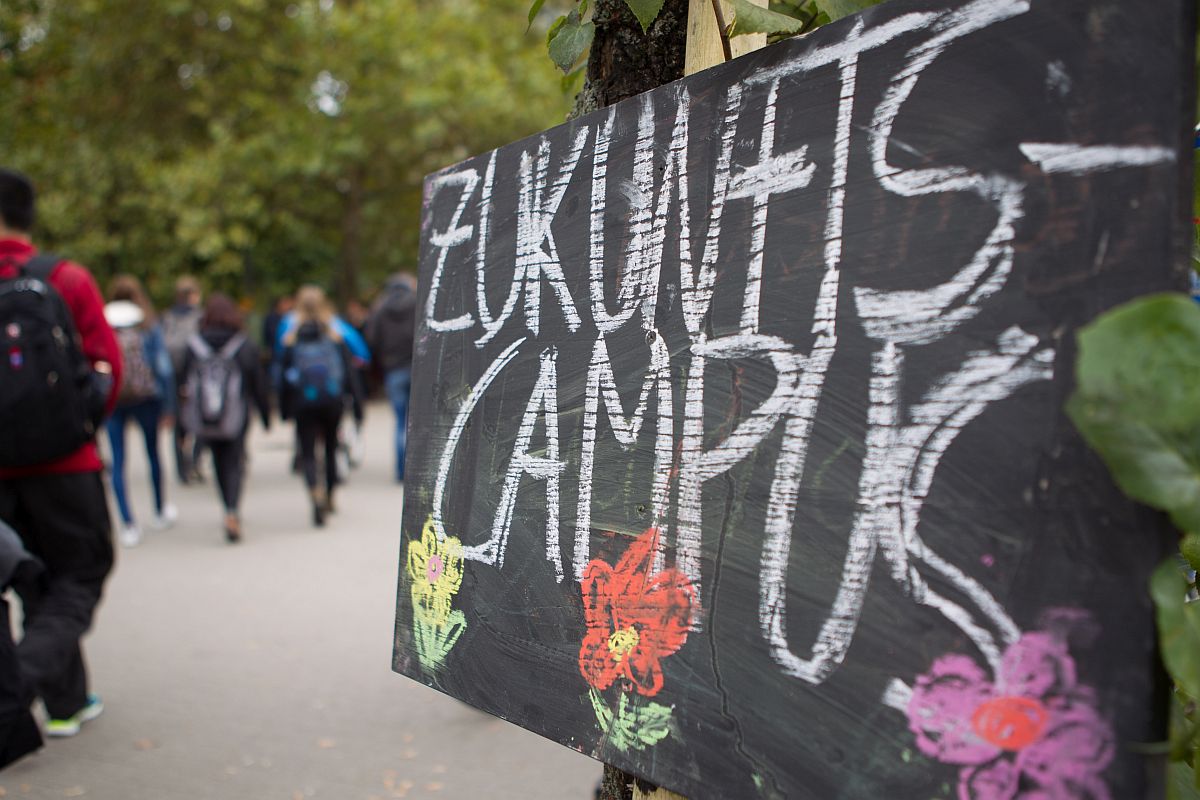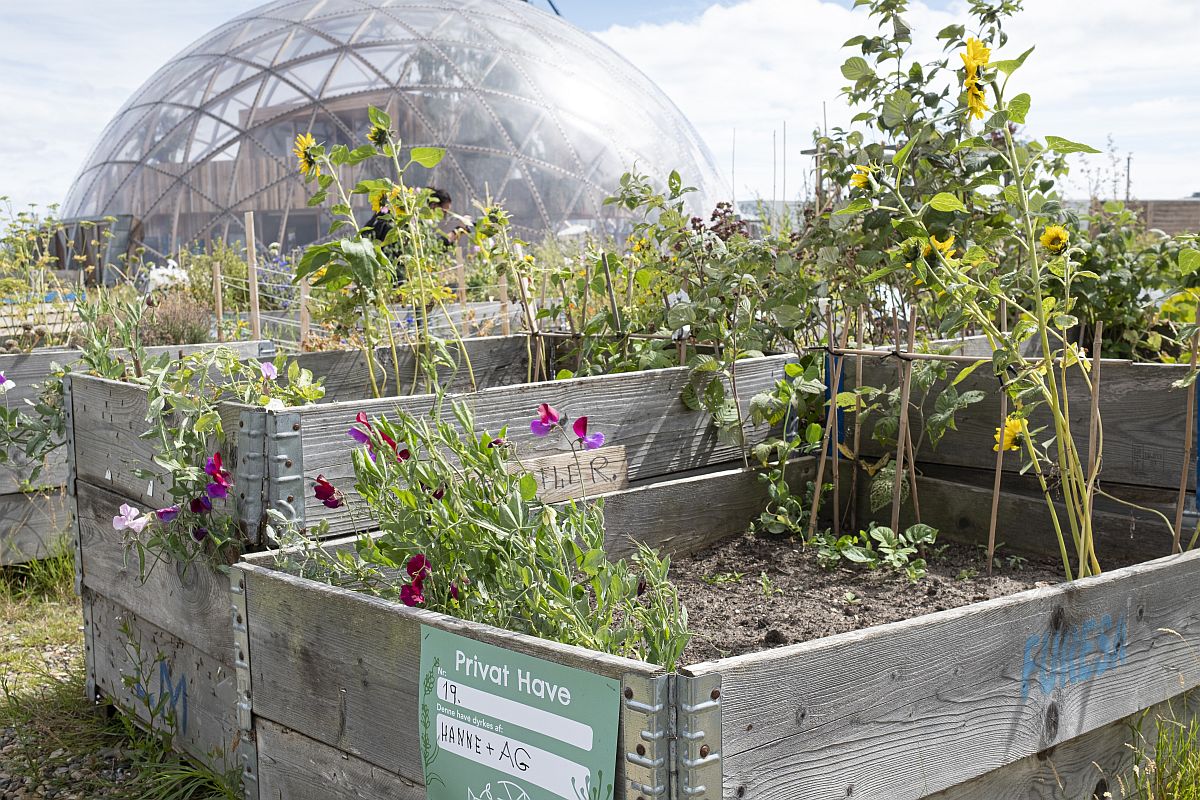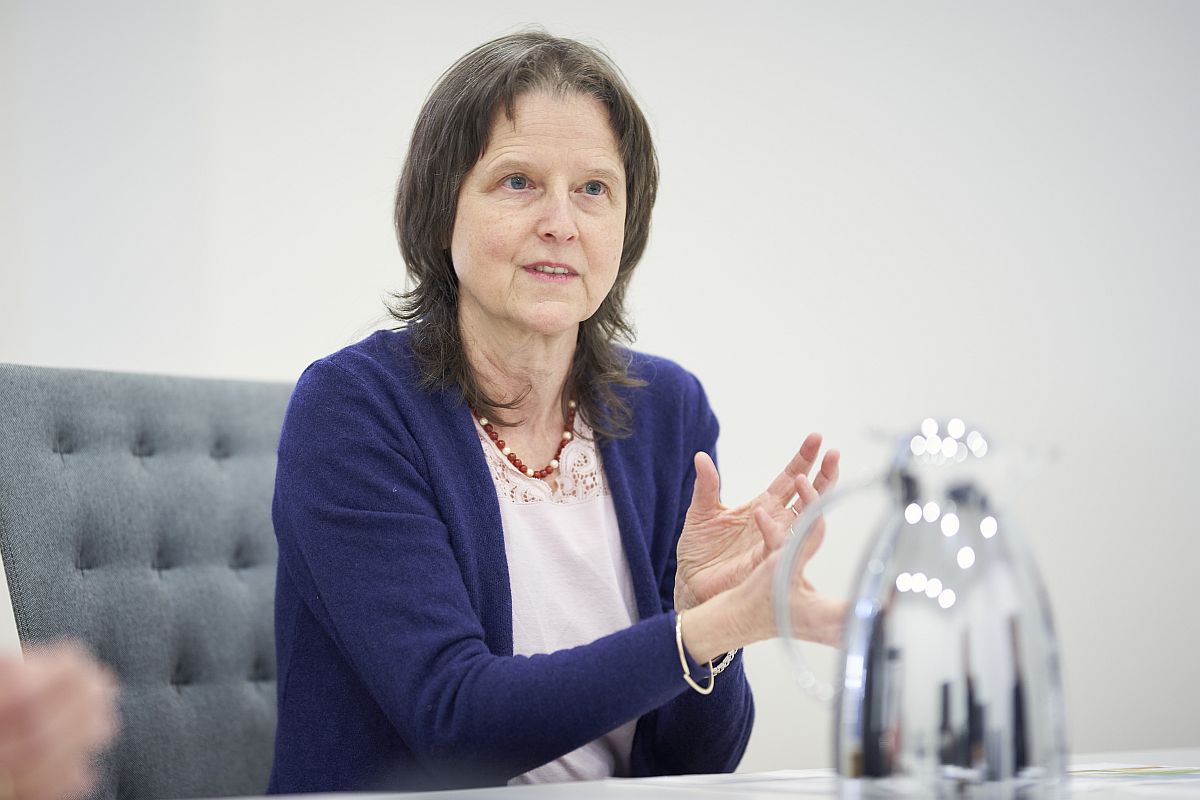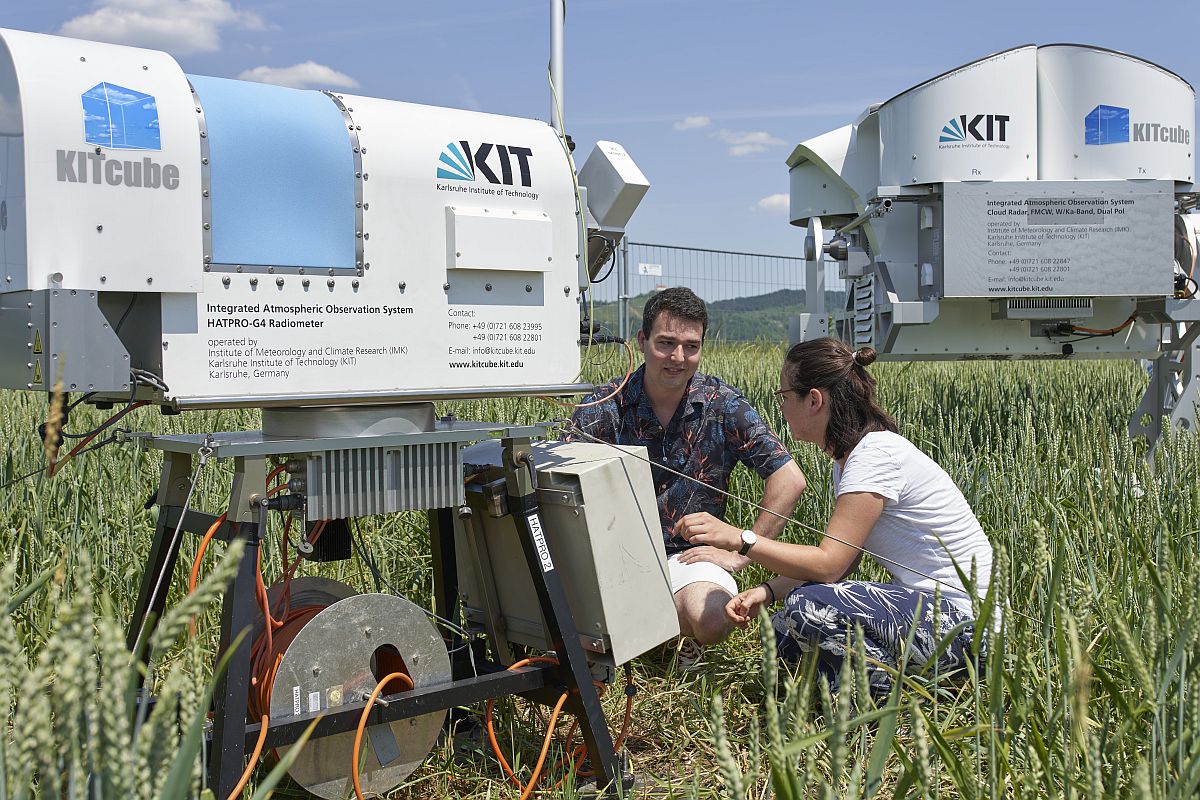Taking Everybody Along
Sustainability is a challenge facing humanity. Holger Hanselka, Thomas Hirth, and Kora Kristof explain the role of science in the transformation towards a sustainable society, why young people are so important, and how KIT will be made sustainable.
Ms. Kristof, Mr. Hanselka, Mr. Hirth, which challenges are associated with sustainability at KIT?
Hanselka: For us, sustainability is a topic that is gaining relevance and has many facets. What can we contribute to a sustainable future from the scientific-technical perspective? What can we do for climate protection? It is mainly a question of attitude. Maybe, we have lost the ground under our feet as a result of industrialization, globalization, and digitalization. To regain it, we will have to further develop as a society, as a university, and personally.
Kristof: It is very important to make sustainability part of all our core tasks – in research, higher education, innovation, transfer, and as an institution – and to think holistically. It is all about climate protection, environmental protection, saving resources, species diversity, economic challenges, and social issues. We have to make our contribution as a university strong in research and as an institution in its entirety. Generally, it is always a matter of giving good responses to concrete challenges.
Hirth: The topic of sustainability has meanwhile reached all parts of society. Politics and industry worldwide address this topic with a new seriousness. Eight years after the Paris Climate Conference and adoption of the 1.5-degree goal, we all have realized the necessity of action. But this also means that demands on science are gaining intensity. People expect us to join work on the development of feasible solutions and resolve conflicts between ecological requirements, social justice, and economic feasibility. But this will only work in dialog. And this dialog is something we want to initiate through the KIT Science Week.
What can your position as researchers be in this situation?
Hanselka: We have to be authentic to the public. People do not want any “symbolic research.” It is beyond dispute that climate protection is a big challenge we are facing. But climate protection alone will not save the climate. We will have to address its causes. How are we living? How are we traveling? How are we producing and consuming? As a technical university, it is our task to optimize products and processes, such that their CO2 footprints are reduced. It is not about prohibiting everything, but it will be necessary to improve or replace technologies. This is an aspect we have to introduce into discussions.
Hirth: We are living in an era characterized by changes on many levels. As during the industrial revolution, our society is being changed fundamentally and the risk of upheavals is very high. With our scientific work, the solutions we develop, and the young people we educate, we can help prevent upheavals. If we want to remain credible, however, we also have to explain to people why giving up a lifestyle and choosing another one will not be sufficient and technical solutions will be needed as well.
Kristof: Let me take up this idea. We have to cover the entire spectrum of potential solutions, from efficiency to consistency, to resilience, to sufficiency. Moreover, our solutions must be implemented in practice. That is why we are supporting transdisciplinary research at real-world laboratories, for instance, with partners from practice, from society, industry, and politics. If we want to convince the people, our developments must not be directed past their needs.
The KIT Science Week also relies on new types of participation.
Hirth: Exactly. It offers great opportunities to expand on all aspects of the challenges we are facing when building a sustainable future, to sharpen our awareness, and to show what we are doing. On the other hand, we can take the society’s ideas along to our daily work. This is important, because we tend to see things through the eyes of scientists and to overlook some aspects. That is why we want start conversations with younger people and those who may be educationally more deprived in particular. Every citizen should know that everything we do is of use. Here, the KIT Science week can be of great help.
What is the role of students and early-stage researchers in bringing sustainability topics into society?
Kristof: Every year, about 5000 students are leaving this university. When they do so with the knowledge that any product, any infrastructure, any production structure they will develop or operate later on should be ecologically, socially, and economically sustainable, this will have a big effect. Our students are highly committed. They want KIT to be sustainable and to move things forward together with us. This is worth a lot.
Hirth: This generation wants to do something meaningful when starting jobs in industry, politics, science, or administration. This is an opportunity. This is where we have to meet them, make good offerings, and call on their sense of responsibility.
What does this mean for academic education?
Hanselka: We have to offer them education that covers a wide range of topics, but also provides in-depth knowledge for them to acquire the basic skills and to learn holistic thinking. We have increasingly specialized so far and offer increasingly specialized education. In the past, we studied along the product lifecycle. Today, we go far into detail and lose sight of the general context. As regards sustainability, this means that it should become a fixed constituent of any degree program.
Hirth: It should not just be an add-on. But, of course, detailed understanding of the scientific discipline must be balanced with the holistic view.
Kristof: This is possible. Sustainable chemistry, for instance, already is an integral component of chemistry studies in some cases. It is of crucial importance to integrate sustainability in all main degree programs. And the students also ask us to do so. I also think that it is important for our students to learn to successfully push changes, to proactively deal with resistance, and to introduce their good ideas into politics, economy, and society. Hence, we also have to impart to students and researchers how transformation can work.
You want to make “entire KIT” sustainable. How do you proceed?
Kristof: I would like to take the whole KIT along on our joint way towards sustainability, in our core areas of research, academic education, innovation, transfer, and as an institution – and to win it for a change of mindset. Examples of crucial questions are: How do we achieve real substantial changes? Which research efforts are intensified? How can our degree programs be further developed? How do we position ourselves with respect to our buildings, canteens, or professional mobility? How do we become involved in social processes outside of KIT? These questions can only be answered jointly. That is why our sustainability strategy covers all activities of KIT. Such a cultural change cannot be imposed from above. We are planning a wide and efficient participation of our colleagues and students.
Let us finally have a look beyond KIT. Creating sustainability and, above all, protecting the climate is rather complex and accompanied by conflicts. How can we set these efforts on the right tracks?
Hanselka: This indeed is the key question. People respond to incentives. Taxation might be a control mechanism. It is a lever that works in our society at least. If CO2 would be priced accordingly, many activities will not be necessary. And if people want to choose more inexpensive solutions, it is important to have such offers, no matter where, in the mobility or the heating sector.
Kristof: The pending fundamental change will have significant consequences for many people, institutions, and companies. This must be considered from the very beginning. We need an integrated policy for a successful socio-ecological transformation that also takes into account economic, legal, institutional, and communicative aspects.
Hirth: Above all, society needs orientation. I am very concerned about the fact that we might fail in taking along everybody in these many change processes. It is essential for social cohesion in such times to leave nobody behind.


